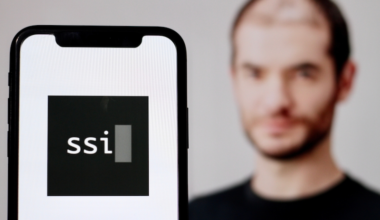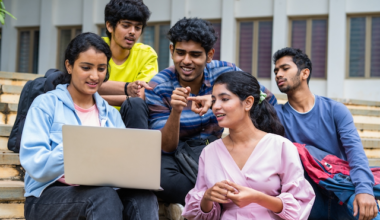The popularity of ChatGPT by Open AI, founded in San Francisco in 2015 by a mostly immigrant team of Israeli-Canadian, Polish-American and other international backgrounds, has led to futurists spinning forecasts and theories about its impact on humanity.
ChatGPT has become such a prevalent topic that recently UNESCO discussed its growing role in criminal justice. According to the agency, the use of AI in judicial systems around the world is increasing. “AI could presumably evaluate cases and apply justice in a better, faster, and more efficient way than a judge,” UNESCO experts believe.
Arrested by robots
It seems self-evident that AI would serve as a superior alternative to the existing, often flawed criminal justice system and its array of imperfect downstream actors.
AI-driven policing agents, for example, would possess a more comprehensive understanding of the law and be less likely to make mistakes that result in human tragedy. As an added bonus to the taxpayer, these AI police will be treated as property, so there wouldn’t be any need for unions, salaries, healthcare or pensions.
After the arrest ChatGPT would present articulate and competent legal arguments on both sides and adjudicate the case in seconds. It will determine the length of prison sentences, which would be served in facilities managed by corrections robots. Just imagine all the cost and time savings.
It’s perfect. What could go wrong?
Does this sound far-fetched? Sam Altman, the current CEO of OpenAI, reportedly believes that a version of this future is likely, and is ready for it to go horribly wrong. According to Business Insider, Sam is a “doomsday prepper with a stash of gold, guns, and gas masks.”
AI is changing everything; it is going to be far bigger than the internet, and it’s probably not even self-aware yet.
As we witness the rapid evolution of AI, and its increasing and inevitable presence in the most impactful areas of our daily lives, an important question arises:
Who’s the boss: Are we training AI to serve us, or is AI training us to serve it? And how do we, as entrepreneurs, make use of it?
On the one hand, AI depends on vast amounts of data collected from human users to learn and improve its algorithms. This allows AI to develop pattern recognition, natural language processing, and other capabilities that enable it to perform tasks with increasing accuracy and efficiency.
In this sense, we are undoubtedly training AI as our interactions with these systems provide essential feedback for their growth. However, as AI becomes more pervasive in our daily routines, and we give it control over our autonomy, it has begun molding our behavior as well.
Altering human behavior
AI-driven recommendation systems on streaming services, or e-commerce websites, shape our preferences and purchasing decisions.
AI-powered tools and applications are also changing how we communicate. Virtual assistants like Siri and Alexa, which rely on natural language processing, have led to an increase in voice-based interactions with technology. In response, users adapt their speaking patterns to better communicate with these AI systems and, in turn, with other humans. This phenomenon of altering human behavior in accordance with AI is a prime example of how technology is also training us.
Most notably, social media platforms commonly use AI algorithms to curate content for users. This has resulted in the creation of echo chambers, closed ecosystems where individuals are continuously exposed to information that reinforces their biases and existing beliefs, leading to violent extremism and even death.
In other words, AI is already affecting humans and, in the future, could detain, adjudicate, and deprive us of our freedoms, as it already partially does in China. So it will clearly be the boss.
Similar to how Google Maps in our cars directs us where to turn, AI is increasingly guiding how we live and work. Undoubtedly, it will understand the roads and traffic conditions of our lives far better than we ever could. If we deviate from the prescribed path, there will be consequences.
Naturally, I don’t know where the future of AI will take us. If I did, I’d probably be spending my days in my luxury doomsday bunker next to Sam Altman and we’d borrow cups of potassium iodide from each other.
What I do know is that real breakthroughs happen rarely, and AI is poised to influence our behavior more than the invention of the internet, gunpowder, electricity, and antibiotics. If you are an innovator, it would be malpractice not to take advantage of it.
We need to use these tools and evolve alongside them. Embrace the symbiotic dance between AI and humanity. There is no way back; the “alien technology” has arrived and the path ahead is either a fruitful coexistence or a dystopian hellscape. As entrepreneurs, we have to choose whether to live in the world of Star Trek or the Matrix.
About the author
Michael Burtov is a serial venture-backed entrepreneur who has grown multiple startups from initial ideas to millions in revenue and venture funding. He has appeared on Shark Tank and his work has been covered in hundreds of major media outlets. He is also the subject of mini-documentaries by Discovery Channel and CNN’s “Great Big Story.” Additionally, Michael has worked with hundreds of high-growth startups to scale and fundraise, directly and through his involvement with leading innovation organizations including Harvard Business School, Harvard Innovation Labs, and the MIT Enterprise Forum. He is also the author of “The Evergreen Startup,” a popular book on early-stage startup fundraising. He holds multiple patents and has received several awards for his work, including the Edison Universe Edison Award, the TIME Magazine Best Inventions Award, The Business Journals Top Inventor Award, Brandeis University Alumni Entrepreneur Award, and the TechCrunch Disrupt Wildcard Award.







